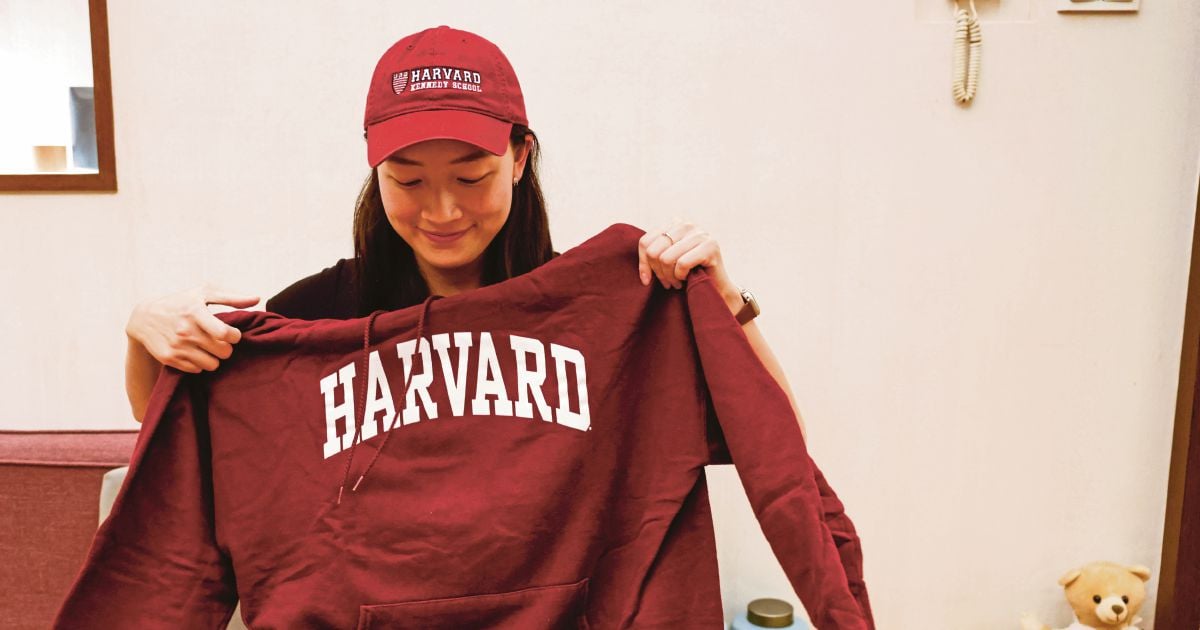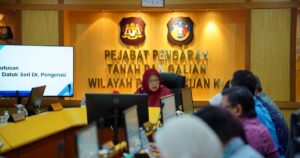HARVARD University’s links to China, long an asset to the school, have become a liability as the Trump administration levels accusations that its campus is plagued by Beijing-backed influence operations.
Last Thursday, the administration moved to revoke Harvard’s ability to enrol foreign students, saying it fostered anti-Semitism and coordinated with the Chinese Communist Party (CCP).
Among them were Chinese nationals who made up about a fifth of Harvard’s foreign student intake in 2024, said the university.
A US judge on Friday temporarily blocked the administration’s order after the Cambridge, Massachusetts, university sued.
The concerns about Chinese government influence at Harvard are not new. Some lawmakers, many of them Republicans, have expressed worries that China is manipulating Harvard to gain access to advanced technology, to circumvent security laws and to stifle criticism of it in the US.
“For too long, Harvard has let the Chinese Communist Party exploit it,” said a White House official on Friday, adding that the school had “turned a blind eye to vigilante CCP-directed harassment on-campus”.
The school has said the revocation was a punishment for Harvard’s “perceived viewpoint”, which it called a violation of the right to free speech as guaranteed by the First Amendment.
Harvard’s links to China, which include research partnerships and China-focused academic centres, are longstanding. The ties have yielded major financial gifts, influence in international affairs and global prestige for the school.
In a statement, the Chinese embassy in Washington said: “Educational exchanges and cooperation between China and the United States are mutually beneficial and should not be stigmatised.”
The presence of Chinese students at Harvard and the school’s links to the country are not evidence of wrongdoing. But the complexity and overlapping nature of the connections have been opaque enough to attract attention and criticism.
The China-related issues cited by the Trump administration echo the work of the Republican-led House of Representatives’ Select Committee on China.
For example, Harvard provided public health-related training to Xinjiang Production and Construction Corps (XPCC) officials after 2020.
That year, the US imposed sanctions on the Chinese paramilitary organisation for its role in alleged human rights abuses against Uyghurs and other Muslim ethnic groups in Xinjiang.
The Homeland Security Department said those engagements with XPCC continued “as recently as 2024”.
China vehemently denies any accusations of wrongdoing in Xinjiang, but both the Trump and Joe Biden administrations have defined Beijing’s policies in the region as “genocide”.
In another episode that has drawn questions, US business intelligence firm Strategy Risks said Ronnie Chan, who facilitated a US$350 million donation to Harvard in 2014 that led to its school of public health being named after his father, property developer T.H. Chan, was a member of the China-United States Exchange Foundation.
The Hong Kong-based organisation, which says its aim is to foster dialogue between the two countries, has been classified as a foreign principal under US law, requiring US lobbyists working for it to disclose that work to the US government.
Former Harvard Professor Charles Lieber was scrutinised by a Trump programme started in 2018 called the China Initiative, which was focused on fighting Chinese espionage and intellectual property theft and investigated researchers and universities over whether they disclosed financial ties to Beijing.
He was convicted in 2021 of lying about his ties to China in connection with federally funded research. In April, he became a full-time professor at a Chinese university.
In April 2024, a Harvard student activist was ejected from an event by a Chinese exchange student — not faculty or security staff — for interrupting a speech by China’s Ambassador Xie Feng.
Pressure has mounted on Harvard in Trump’s second term, with the Education Department asking the university last month to provide records on its foreign funding after it said a review of required reporting on large foreign-source gifts and contracts revealed incomplete and inaccurate disclosures.
Yaqiu Wang, a US-based human rights researcher who came to the US from China as a student, said the Trump administration’s move to ban foreign students at Harvard was “completely counterproductive”.
“The concerns over the Chinese government’s transnational repression attempts to silence critics are very legitimate, and also espionage concerns are legitimate,” Wang said.
“But to try to address that by banning, not only Chinese students, but foreign students, is just beyond comprehension.”
© New Straits Times Press (M) Bhd






